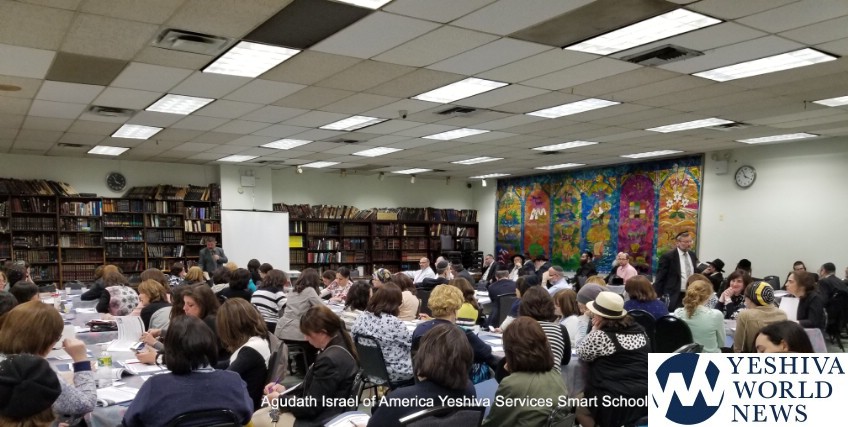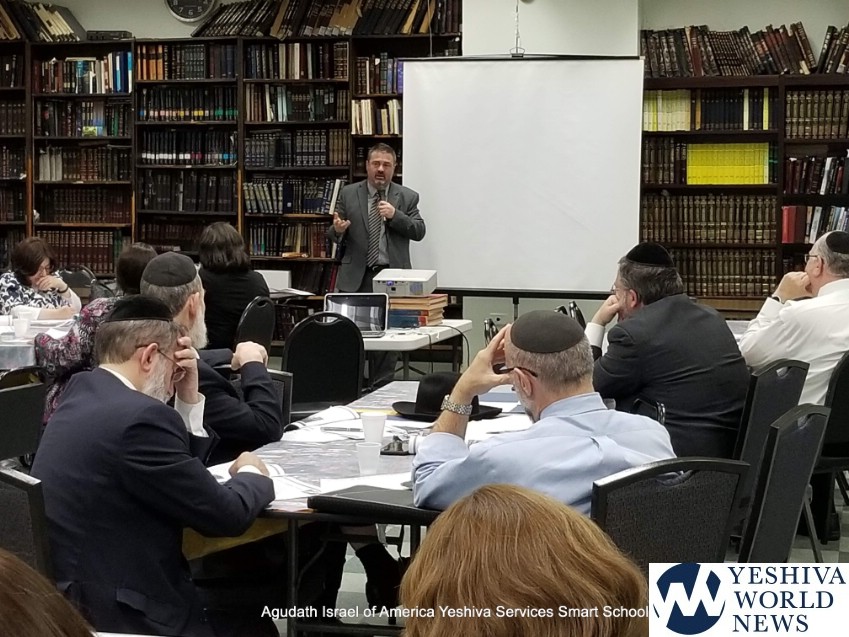Mistakes happen. Most mistakes, though, don’t cost $25 million.
This one (almost) did. A misread of the Smart School Bond Act (SSBA) caused millions of dollars in lost technology equipment to New York yeshiva students. Fortunately, Agudath Israel of America and its partners, in the culmination of nearly four years of advocacy, were able to secure the fair and rightful share of the SSBA for nonpublic school students in New York State.
Background
It began on November 4, 2014, when New York voters approved the SSBA. The SSBA authorized $2 billion to improve education in NYS public schools. School districts could earmark some of that money for classroom technology. In that case, the districts must loan devices, equal to the proportionate share of the technology items ordered, to nonpublic schools.
The NYC Department of Education (DOE) did indeed use some of their SSBA funding for classroom technology. The value of devices required to loan to nonpublic schools, they asserted, was $92.60 per student.
There’s a Problem
To nonpublic school advocates, the appropriations for nonpublic school students seemed oddly low. After researching the subject, Avrohom Weinstock, Esq., Agudath Israel’s Chief of Staff and Associate Director for Education Affairs, realized that certain school districts, including the NYC DOE, misinterpreted state guidance on the matter. The districts were not calculating funds to offset certain categories of technology items that were, in reality, included in the statute and the state’s interpretation of it. When he found that other districts explicitly included these same items in their nonpublic school loan amounts, he knew he had a case.
The ramifications of this mistake were huge.
Mr. Weinstock worked hand in hand with Agudah’s coalition partners, Mrs. Sara Seligson of the Jewish Education Project, Mr. Yosef Kanofsky of TEACH NYS, Michael Coppotelli of the Archdiocese of New York, and Mr. David Rubel of the Sephardic Community Federation and the United Jewish Organizations of Williamsburg. Mr. Rubel, in particular, performed significant research on this issue.
Agudath Israel Advocates
Agudath Israel and its coalition swung into action. Mr. Weinstock penned a brief showing why the NYC DOE should provide a much higher per capita amount to nonpublic school students. Agudah met numerous times with state officials at the highest levels to correct this inequity. Their efforts were successful in three critical ways:
– The NYS Legislature allocated an additional $25 million for nonpublic school technology under SSBA to make up for the shortfall caused by the miscalculation.
– NYS Assistant Commissioner for Nonpublic Schools, Christina Coughlin, advised that the State Education Department to earmark $19.6 million of that money to NYC’s nonpublic schools.
– The Smart School Bond Review Board adopted new language in the guidelines to explicitly include the technology items described in Agudah’s brief as eligible for nonpublic schools so as to avoid future ambiguity.
Thanks to Agudah’s efforts, NYC DOE is now allocating $201 per nonpublic school student. That’s more than double the previous allotment. Other districts will see increased allocations as well. New York yeshivos now have the funding they need and deserve to access smartboards, desktops, laptops, monitors, printers, projectors, wireless access devices, and computer servers. What devices are available, for classroom use, will vary by district.
Supporting Schools
But Agudah’s work was not done.
The SSBA program is being rolled out in mid-June, so schools can order materials for the 2019-20 school year and beyond. But busy administrators, specifically at the end of the year, are time-pressed to sift through reams of governmental literature and guidebooks to learn the ins and outs of a new program.
To empower yeshivos to get ahead of the curve, Mrs. Deborah Zachai, Agudah Director of Education Affairs, and Ami Bazov, Esq., Coordinator of Education Affairs, organized an SSBA workshop attended by more than 90 yeshiva school principals and administrators in early June. Mr. Eric Weinbaum, Senior Director of Operations of the Office of Non-Public Schools at the NYC Department of Education, presented at the informative workshop and answered questions.
Mrs. Tsena Feigelstein, administrator at Be’er Hagolah Institute, was in attendance. In her words. “We rely on Agudah. I know they’ll give us the information we need in a way that’s easy for us to access. It’s quite simple: without Agudah, I don’t know how our schools would be able to function. It’s a lifeline.”

(YWN World Headquartres – NYC)











